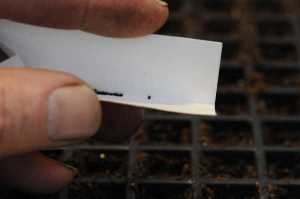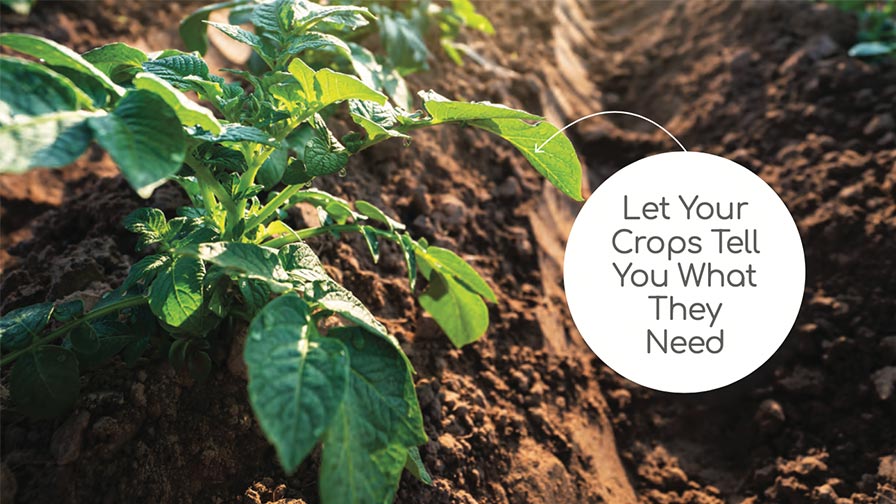New Vegetable Varieties Available For Free To Growers
Scientists, farmers, and sustainable food systems advocates gathered this April at the University of Wisconsin (UW)-Madison campus to inaugurate 29 new varieties of broccoli, celery, kale, quinoa, and other vegetables and grains that are being publicly released using a form of ownership agreement known as the Open Source Seed Pledge (OSSI).
The pledge, which was developed through a UW-Madison-led effort known as the Open Source Seed Initiative, is designed to keep the new seeds free to grow, breed, and share for perpetuity, with the goal of protecting the plants from patents and other restrictions down the line.

Photo credit: Dwight Sipler via Flickr Creative Commons
“These vegetables are part of our common cultural heritage, and our goal is to make sure these seeds remain in the public domain for people to use in the future,” says UW-Madison horticulture professor and plant breeder Irwin Goldman, who helped write the pledge.
Goldman will release two carrot varieties he developed, Sovereign and Oranje, at a public ceremony on the front lawn of the UW-Madison’s Microbial Sciences Building.
The Open Source Seed Initiative (OSSI) was established in 2011 by public plant breeders, farmers, non-governmental organization staff, and sustainable food systems advocates from around the nation concerned about the decreasing availability of plant germplasm seeds for public plant breeders and farmer-breeders to work with.
“These vegetables are part of our common cultural heritage, and our goal is to make sure these seeds remain in the public domain for people to use in the future,” said Goldman.
Early on — inspired by the open source software community, which freely shares and collaborates to improve their products — OSSI members starting exploring how to develop open source licenses for seeds, but came upon numerous roadblocks along the way.
This spring, eager to get things moving forward again, Goldman and Kloppenburg convinced many in the group to embrace the simplest option they had discussed: the Open Source Seed Pledge.
Unlike the comprehensive open source licenses the OSSI group originally tried to develop, the pledge is very concise, and will be printed on all OSSI seed packets.
“It basically says these seeds are free to use in any way you want. They can’t be legally protected. Enjoy them,” says Goldman.
By opening the packet, a person signals their commitment to keep those seeds and any future plant derivatives bred using them in the public domain.
“It creates a parallel system, a new space where breeders and farmers can share seeds,” says Kloppenburg. “And, because it applies to derivatives, it makes for an expanding pool of germplasm that any plant breeder can freely use.”
Even with the new pledge available, Goldman, who breeds beets, carrots, and onions, still plans to license many of his new varieties the traditional way through the Wisconsin Alumni Research Foundation (WARF), the patenting and licensing arm of the UW-Madison, which has been supportive of his interest in open source seeds. It depends on the situation, he notes.
If Goldman develops a new variety that he’d like to see large seed companies incorporate into their breeding programs — a new carrot, for instance — with improved disease resistance, he’ll most likely work with WARF to release the seeds using a traditional license.
“There are economic opportunities here,” Goldman notes. “You can sell these open source seeds just like you’d sell any other seeds. The difference is that the recipients can actually do stuff with them, which is kind of fun.”
Because the Open Source Seed Pledge has not been tested, it’s unclear what its legacy may be. For now, OSSI members are enjoying their recent accomplishments and hoping for the best.
“Who knows what will happen, but even if the pledge does nothing more than help raise awareness about what’s going on with seeds, that’s progress,” says Goldman.
Some would like to finish the job of developing a more comprehensive open source license for seeds, and others want to bring international partners on board.
“This is the birth of a movement,” says Kloppenburg. “Open source means sharing, and shared seed can be the foundation of a more sustainable and more just food system.”
Source: Story by Nicole Miller, republished from University of Wisconsin-Madison with permission.









